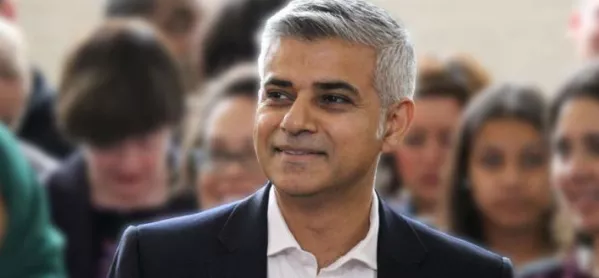Revealed: Sadiq Khan’s 25-year plan for London skills

London mayor Sadiq Khan has published his 25-year plans on skills and opportunities for Londoners.
In the “New London Plan”, published today, Mr Khan has committed to working with strategic partners to address low pay and gender and ethnicity pay gaps, as well as coordinating national, regional and local initiatives to promote inclusive access to training, skills and employment opportunities for all Londoners.
The plan is the overall strategic plan for London that sets out the integrated economic, environmental, transport and social framework for the development of London over the next 20 to 25 years.
In August 2019, the adult education budget was devolved to London and in September that year, Mr Khan urged the government to devolve further powers, as well as funding for skills and employment, to City Hall and the boroughs of the capital.
Rishi Sunak’s Budget: What will it mean for FE?
More: £630m in adult education funds handed to mayors
Sadiq Khan: ‘I’m not blaming schools for knife crime rise’
In his foreword to today’s plan, Mr Khan says: “Through this London Plan, we want to continue building a city that works for all Londoners - where everyone has the opportunity to reach their potential, lead fulfilling lives and build tight bonds with people from many different backgrounds within their communities.
Sadiq Kahn: ‘Exciting, cutting-edge career opportunities’
“My vision has always been for a city with an economy that supports more and better-paid jobs - spread across the capital. A city where people can spend less time commuting because we have so many thriving parts of London, with good affordable housing, combined with exciting, cutting-edge career opportunities. And a city where access to great culture is built into the fabric of every part of London, with our rich heritage and cultural offer supporting our growing world-class creative industries.”
The skills and opportunities policy outlined in the plan also commits to developing proposals that support employment, skills development, apprenticeships and other education and training opportunities in both the construction and end-use phases.
The plan says: “Boroughs should ensure these are implemented in ways that:
- Enable those people undertaking training to complete their training and apprenticeships.
- Ensure the greatest possible level of take-up by Londoners of the training, apprenticeship and employment opportunities created.
- Increase the proportion of under-represented groups within the construction industry workforce.
“In partnership with the mayor, boroughs are encouraged to consider cross-borough working to open up opportunities, including those created via Section 106 obligations [of the Town and Country Planning Act 1990], on a reciprocal basis, to residents from adjacent boroughs and across London.”
The New London Plan: Improving skills ‘critical to tackling disadvantage’
The plan highlights that more than 270,000 Londoners are unemployed, with particularly high rates of youth unemployment, and says that “ensuring an effective and responsive skills system is critical to tackling these issues, enabling more Londoners to find and progress in work and support strategic and local regeneration”.
It says access to high-quality education and training is “one of the most powerful ways to break down inequalities and improve social mobility.”
The plan says: “Every child, young person and adult should be given the best possible chance for success and be equipped to make the most of the economic opportunities the capital has to offer. High-quality education and training provision, including the allocation of sufficient sites and the development of childcare facilities, schools, colleges and universities in appropriate places, will not only help to provide greater educational choice but will also improve skills, which is critical in tackling disadvantage. Good quality education and training are vital for supporting people into sustainable employment, which is also essential to London’s continued economic success.”
It highlights the predicted increase in FE provision due to the growing number of 16- to 19-year-olds, and says “meeting this growing demand will require strategic planning and working across boroughs”.
It adds: “FE institutions also provide valuable community facilities and services. The mayor will continue to support the enhancement of FE colleges and other training facilities through the Skills for Londoners Capital Fund.”
You need a Tes subscription to read this article
Subscribe now to read this article and get other subscriber-only content:
- Unlimited access to all Tes magazine content
- Exclusive subscriber-only stories
- Award-winning email newsletters
Already a subscriber? Log in
You need a subscription to read this article
Subscribe now to read this article and get other subscriber-only content, including:
- Unlimited access to all Tes magazine content
- Exclusive subscriber-only stories
- Award-winning email newsletters